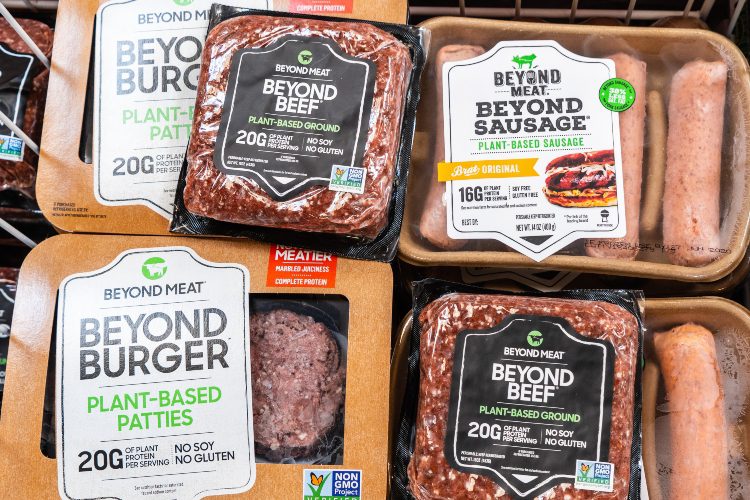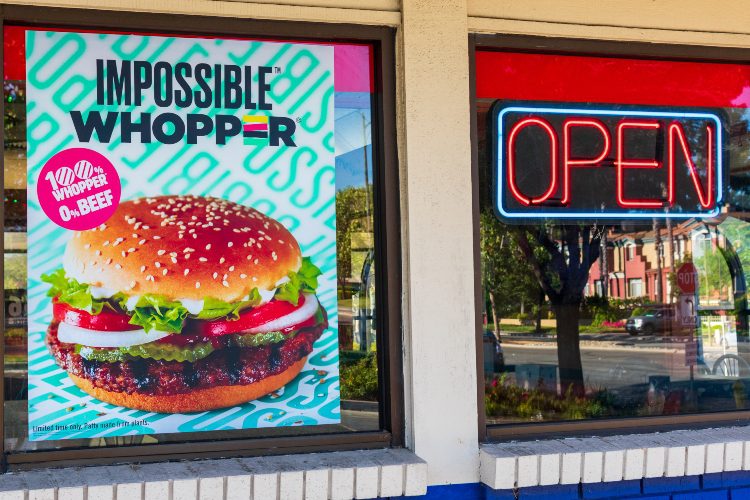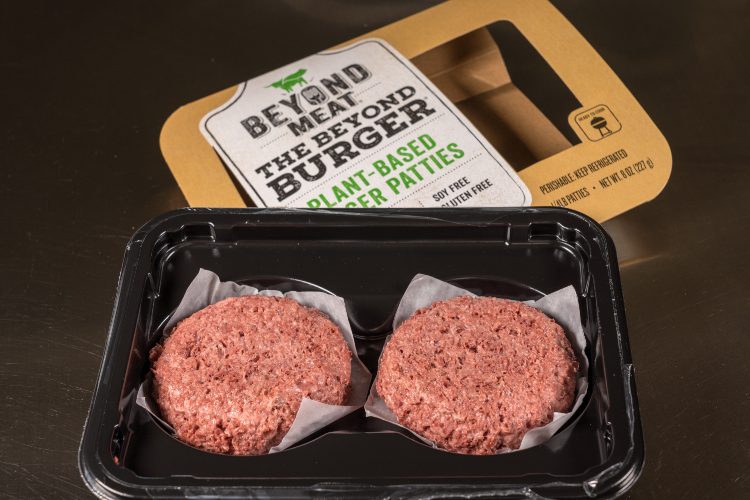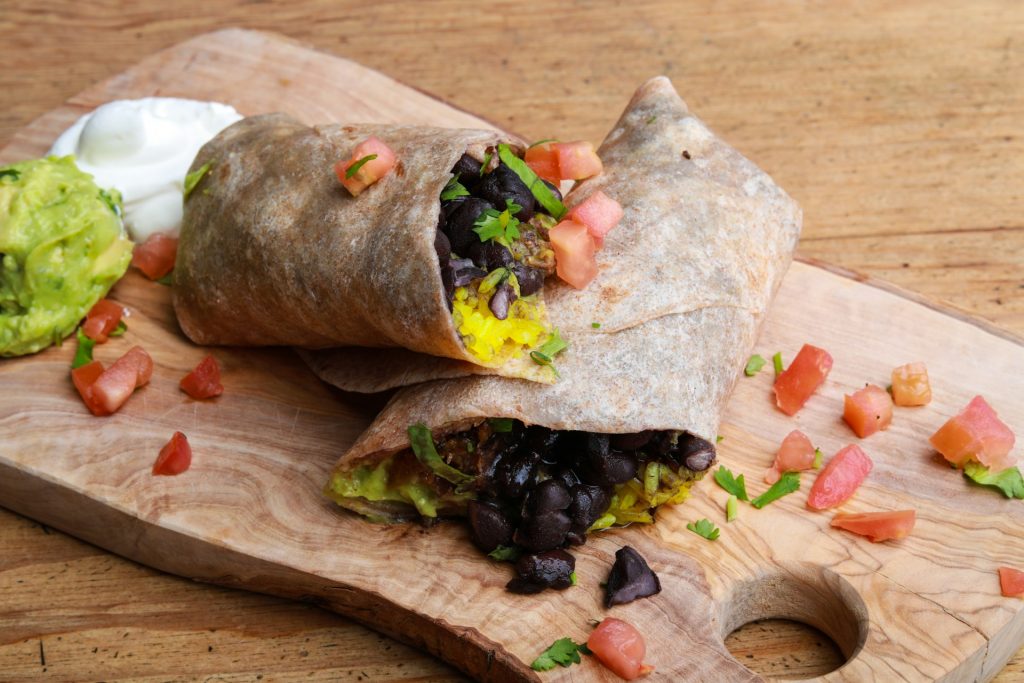
Sundry Photography/Shutterstock
If you look at the menus of most major fast-food chains or in the freezer section of your local grocery store, it might seem that plant-based meat is all the rage. However, the numbers do not prove this theory true. In fact, taking a look at the books, it's clear that plant-based meat alternatives' sales have been plummeting for some time and are continuing to do so! Read on to find out why...
Plant-Based Meat Sales Face A Sudden Drop

Michael Vi/Shutterstock
If you have been keeping track of plant-based meat alternatives for any amount of time, you know that they seem like the latest craze. From appearing on the menus of fast-food giants like Subway, Burger King, Carl's Jr., and more to taking over whole sections of the freezer section at grocery stores, it seems there's no end to the plant-based meat phenomena. However, the numbers simply do not bear that out. According to a new study from the retail data tracking group SPINS, plant-based meat alternatives are way, way down.
"In the four weeks to October 3, sales of plant-based meat alternatives fell 1.8 per cent compared to the year before, taking declines for 2021 to 0.6 per cent," a SPINS spokesperson explained. "A surge in plant-based meat sales at the start of the pandemic in 2020 set a high hurdle for growth this year, but demand was also affected by consumers eating at home less as restrictions were lifted, while supply chain problems made some products unavailable in stores."
While SPINS blames supply chain issues for the decrease in sales, others are looking to the vast variety of options compared to demand. On the other hand, Beyond Meat CEO Ethan Brown believes that the weak sales are actually due to two separate issues: one, people becoming less interested in the healthier options as a result of staying home, and two, people heading to the grocery store less overall.
Of course, the companies might also want to look at their prices...
Attracting Consumers

Steve Heap/Shutterstock
There seems to be one big issue that both SPINS and the Beyond Meat CEO missed: the high prices of plant-based meat alternatives. Believe it or not, the alternatives are still, on average, 35% higher than actual meat. That's right! Meanwhile, Bahige El-Rayes, at consulting company Bain, also thinks that the plant-based meat sales are dropping because brands have stopped developing. He says that they need to put more time and money into better taste, texture, and aroma of the meat alternatives.
Still, that will not stop those in the vegan meats market from remaining optimistic. Steven Cahillane, CEO at Kellogg, which owns the vegan meat brand MorningStar, says that there is "still a lot of enthusiasm and excitement" for these plant-based meat alternatives. Will Cahillane prove the winner here? Or will plant-based meat sales continue to plummet, quarter after quarter? Only time will tell, but most don't predict that, given the current options, that consumers will make permanent changes to their meat-eating habits.
Sources: Herculean Strength, The Takeout



